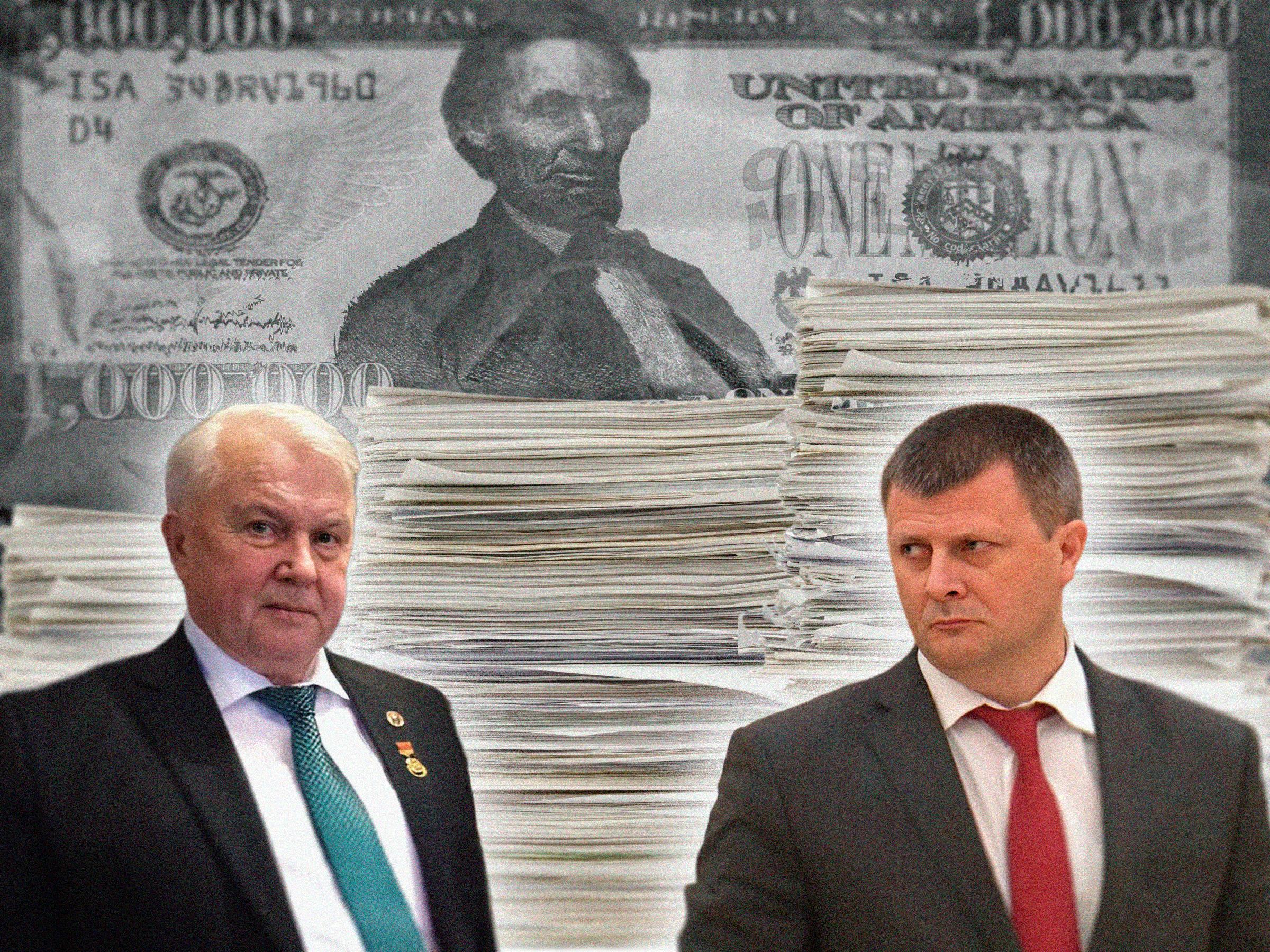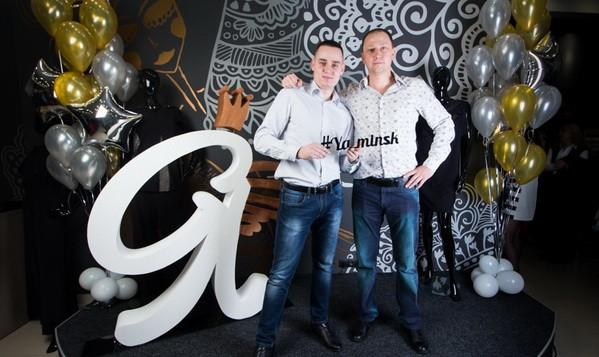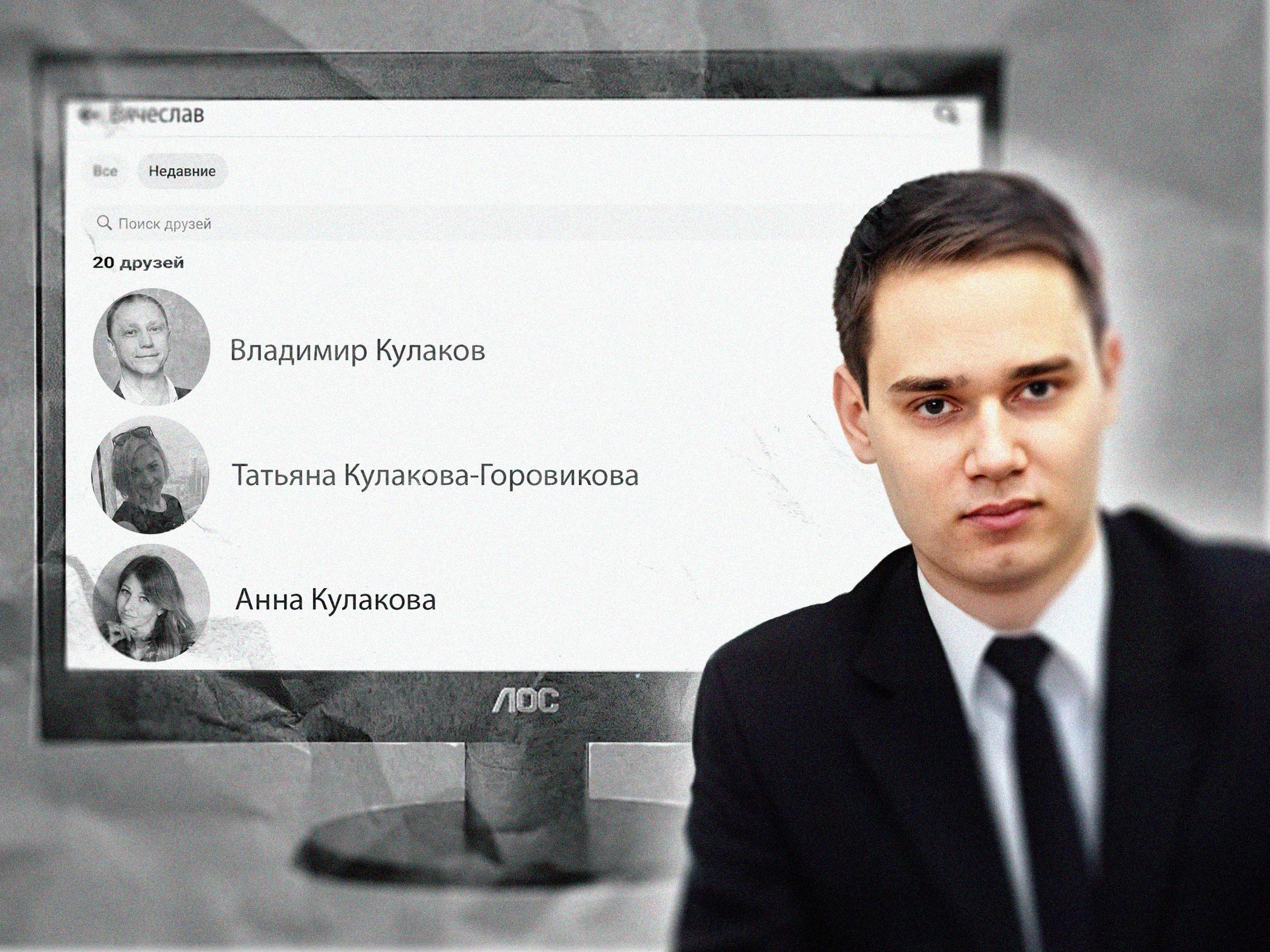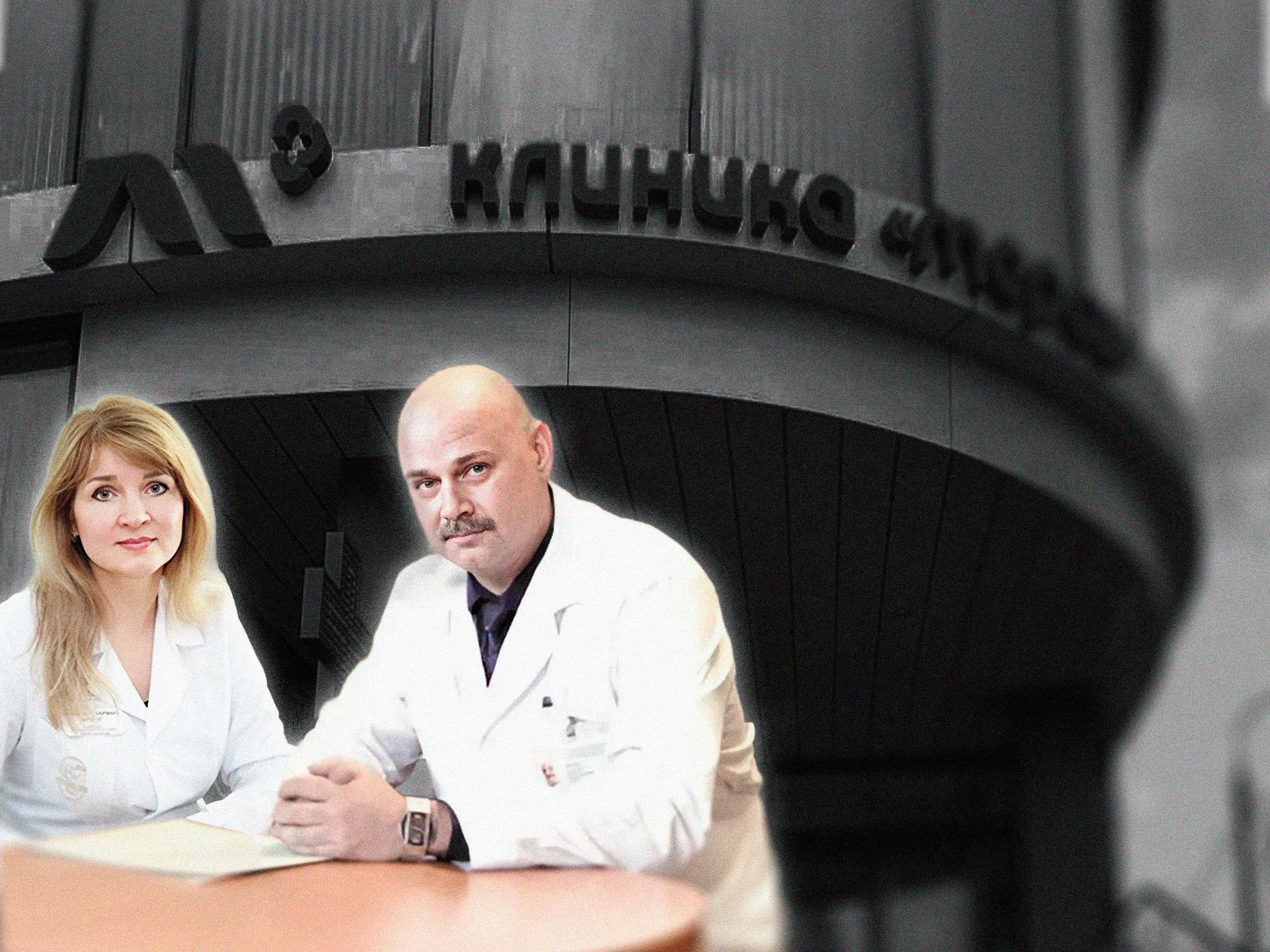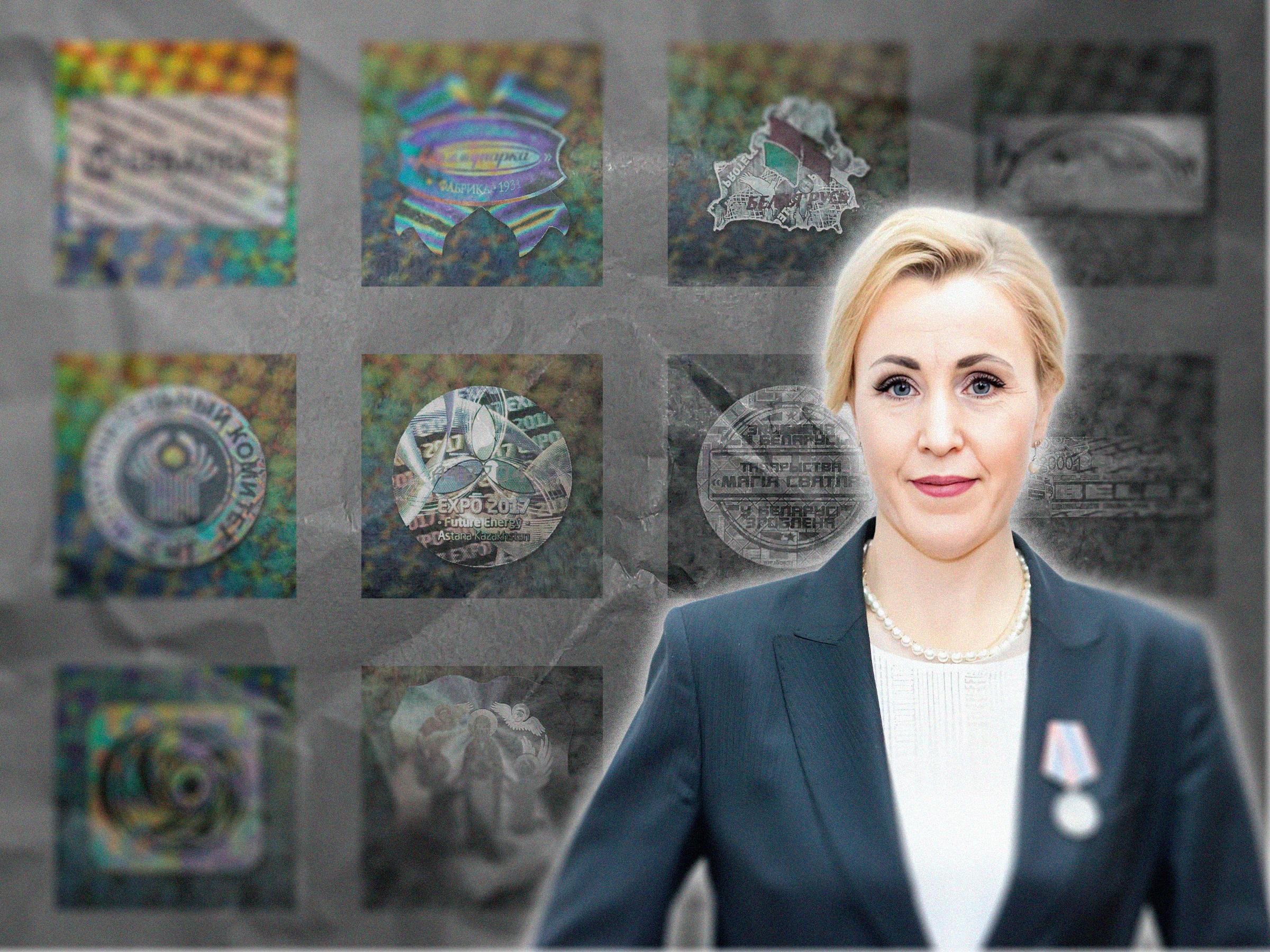This investigation was conducted with the support of OCCRP and CyberPartisans.
On at least four occasions, Aleksandr Lukashenko has presented works of holographic art to the high and the mighties. In 2013, he presented it to Patriarch Kirill, in 2014 to Patriarch Irinej of Serbia, in 2016 to Pope Francis, and in 2019 to Sheikh Mohamed bin Zayed Al Nahyan, Crown Prince of Abu Dhabi.
The rationale behind the decision to present glossy, rainbow-coloured images is unclear. But BIC journalists found out who manufactures them – both in the form of gift icons and security holograms. The Belarusian company’s turnover is growing every year. [*] [*]
HOLOGRAPHIZATION OF THE COUNTRY
A hologram is an image that records the light field created by optical radiation. This technology has been used worldwide since the 1980s to protect documents and credit cards from counterfeiting. Security holograms are widely used in Belarus. You could say they have become a matter of national pride.
Holograms can be found on passports, patent forms, residence permits, insurance policies, lottery tickets and bus passes. In Belarus, security elements are used on more than ten types of forms and documents.
This type of protection exists in many countries. But in Belarus, they seem to be trying to cover literally everything with security holo stickers. In the shops, you will find holographic labels on juice boxes, canned food, caviar, coffee, tea, oil, mineral water, soda, detergents, washing powder, antifreeze agents, printers, laptops, mobile phones, monitor displays, televisions. And that’s not a complete list. In Belarus, holograms appear on cash registers and slot machines. They are also used on excise stamps for alcohol and tobacco products.
An excise stamp for alcoholic beverages costs 7 kopecks or 2 euro cents. About 79 million litres of vodka were sold in Belarus in 2023. If it had been bottled in 1-litre bottles, the profit from the excise stamps would have amounted to 5.5 million Belarusian roubles or more than 1.5 million euros. And it’s just vodka. [*] [*]
We have not been able to find out how much a hologram for an excise stamp costs. This is a secret, the founder of the company that produces the security stickers told a BIC journalist: “This is classified information. <...> Why don’t you go and ask the KGB why they don’t go around telling everybody what they’re doing?”.
Beer sales are in the hundreds of millions of litres. In Belarus, it is also marked with hologram control marks, unlike in neighbouring Poland, Ukraine and Russia. In Lithuania, for example, there is also no mandatory labeling of food products with holograms. We were informed about this by the state food and veterinary service of the country.
The feasibility of using holograms for labelling goods was questioned at the HOLOEXPO conference in St. Petersburg in 2022. However, a representative of an influential Belarusian private company (discussed below) insisted that digital labelling without holograms was not reliable enough. In Belarus, for example, such protection is still only promoted in combination with optical protection.
At the same time, Maksim Kurgansky, Director for Protection of the Legal Turnover of Products at the Russian Center for Development of Advanced Technologies, noted that sticking holograms to inexpensive goods would result in a notable price increase. Despite the existence of counterarguments, the Belarusian authorities have claimed a demand for holographic protective elements. These are required regularly and in significant quantities, given the extensive list of goods that must be labelled.
HOLOGRAPHIC INDUSTRY
According to the Ministry of Finance, Golograficheskaya Industria is the only Belarusian company licensed to produce security holograms and crystallograms for security forms and documents of a certain protection class. Upon its receiving a licence to operate in March 2011, the Council of Ministers promptly issued a series of decrees that introduced hologram stickers on a wide range of goods, cash registers and slot machines. [*]
Golograficheskaya Industria has a close working relationship with Minskaya Pechatnaya Fabrika, which is part of the Department of State Marks of the Ministry of Finance, abbreviated Goznak. This body is responsible for formulating policy on the design and production of security forms, state marks and documents with a certain protection class.
Golograficheskaya Industria and the state-owned Minskaya Pechatnaya Fabrika have at least one joint patent in Belarus and two (1, 2) in the Eurasian Patent Organisation. Former Goznak director (until 2022) Siarhei Kislukhin co-authored seven patents with the founder of Golograficheskaya Industria.
It is Goznak’s companies that help Golograficheskaya Industria generate stable revenues. In 2023, for example, the company won a tender for the purchase of polymer materials worth more than 8 million Belarusian rubles (around €2.5 million). Minskaya Pechatnaya Fabrika was the customer. [*] [*] This deal alone accounted for a fifth of Golograficheskaya Industria’s annual turnover: over 43 million Belarusian roubles, or more than €13 million. The company’s net profit for 2023 is about 3 million roubles or €900k. Over the last five years, it figured up to over €5 million. The company’s revenue has grown for at least four consecutive years. [*] [*]
Speaking to BIC journalists, the founder of Golograficheskaya Industria confirmed that Goznak was supporting the company through one of its companies: “Goznak is now effectively helping us acting through Cryptotech”.
According to the Golograficheskaya Industria website, between 2005 and July 2017 alone, companies under the Ministry of Finance’s Department of State Marks sold about $1 billion worth of forms and documents with some protection class. It also states that Golograficheskaya Industria fully supplies the Belarusian market.
That is, a private company with a constantly growing turnover, connected with the structures of the Ministry of Finance, occupies a special place in the Belarusian holography market.
DOCTOR OF SCIENCE HONOURED BY LUKASHENKO
Golograficheskaya Industria was established by Leanid Tanin, a Doctor of Physical and Mathematical Sciences, Honoured Inventor of Belarus, and Academician of the International Academy of Engineering. He is also a co-author of numerous patents in the field of optical physics. He is also known as the founder of the holography school in Belarus.
The methods developed by Tanin, which combine 3D and 2D images, have been granted patent protection in the USSR, USA, Germany, Bulgaria, Czechoslovakia and France. In 2000, he was elected a Fellow of the International Academy of Engineering in recognition of his outstanding achievements in science and technology.
In a conversation with a BIC journalist, Leanid Tanin stated, “I have dedicated 52 years of my life to the field of holography, from morning to night”. He noted that he considers artistic holography particularly important. His entire office is decorated with such artwork.
In the 1990s, the inventor was a member of advisory councils on national security issues, both under the Council of the Republic of Belarus and under the Chairman of the Russian State Duma. In Belarus, Tanin succeeded in getting holograms used on excise stamps and in labelling goods.
“I had a few heart attacks before I achieved as much as I did”, he noted.
Aleksandr Lukashenko presented the scientist with numerous state awards, including the Prize “For Spiritual Revival”, the Order of Honor, and the title “Honored Inventor of the Republic of Belarus.”
“That’s the kind of entrepreneurs I support. After all, they managed to create a new industry from scratch, using their brains and attracting foreign investment”, Aleksandr Lukashenko said of Tanin when awarding him a doctoral certificate in 2016.
In addition to the scientist, the shareholders of Golograficheskaya Industria include his grandson Viacheslau, the second company founded by the inventor, Magia Sveta, two state-owned enterprises – Cryptotech, which is part of the aforementioned Goznak, and the B.I. Stepanov Institute of Physics under the National Academy of Sciences of Belarus – as well as two open joint-stock companies producing alcoholic beverages – Minsk Kristall and Brest Distillery BELALKO, and the Tekhnokhimtreid company.
THE FAMILY AND THE “DICTATOR’S MONEYBAG”
Of all the shareholders, we were most interested in Tekhnokhimtreid. At least in early 2016, it held the largest 35.5% stake in Golograficheskaya Industria. [*] The sole owner of Tekhnokhimtreid is businessman Viktor Chevtsov, dubbed “the dictator’s wallet” by the media in 2011. [*] [*] He was one of the beneficiaries of Trustbank. Trustbank, in turn, had a stake in Belzarubezhstroy. [*] This firm was also controlled by the state. [*]
A year ago, BIC published an investigation showing how Viktor Chevtsov, along with the state, made money from Belzarubezhstroy projects in Venezuela from 2007 to the early 2020s. The company has completed at least half a billion dollars worth of projects there. In 2004, Trustbank was called Infobank. [*] [*] Through Infobank, Chevtsov was a beneficiary of Belmetallenergo, which participated in the UN Oil-for-Food Program. [*] [*] As part of the agreement, Belmetallenergo received quotas for oil deliveries. The US imposed restrictions on Infobank, suspecting it of laundering money for Saddam Hussein’s regime, but lifted them after an inquiry.
The UN launched the Oil-for-Food program in 1995. International sanctions have seriously deteriorated the lives of the people in Iraq. Saddam Hussein’s regime was permitted to export oil under the condition that the revenue would be used to purchase food.
In the early 2000s, a scandal erupted around the program. It was discovered that food was not reaching Iraqis, and oil sales were only benefiting the Hussein clan.
In its October 2005 report, a UN committee accused almost half of the 4,500 program participants of paying kickbacks to obtain contracts. The scheme involved Iraq selling oil below market value, which was then resold by its partners. The excess profits were then returned to representatives of Hussein’s regime in cash. According to UN calculations, the Hussein regime embezzled $1.8 billion in this way. Belarus, which had close contact with the Hussein regime, was among the states charged by the UN.
Viktor Chevtsov’s holographic business was not known before we started investigating. Not only is he a formal shareholder in Golograficheskaya Industria through Tekhnokhimtreid, but he is also an active participant in the company’s operations. The CyberPartisans database shows that Chevtsov worked for the company at least in 2016-2017. [*] Between 2003 and 2013, the businessman co-authored eight patented inventions in which the applicant and right holder were either ZAO Golograficheskaya Industria or OOO Magia Sveta, another company owned by the Tanin family.
Leanid Tanin confirmed in a conversation with us that he knows Chevtsov. Among other things, his connections helped Golograficheskaya Industria achieve a leading market position.
“It was not without his [Viktor Chevtsov’s] participation. He made a very good move in his day. He gave part of his shares to the state”, Tanin explains. “But in return, the state placed orders with us, consistent orders. No, he’s certainly a savvy businessman”.
The scientist noted that Chevtsov also helps the company to buy materials abroad. This is difficult to organise under the sanctions.
In addition to the “dictator’s moneybag” Chevtsov, BIC journalists found other links between Golograficheskaya Industria shareholders and people close to the authorities. Viacheslau Tanin, grandson of Leanid Tanin and owner of a stake in the company, is a member of the commercial department. He is acquainted with relatives of the Lukashenko family.
We have located a joint photograph of Viacheslau and Uladzimir Kulakou, who is married to the sister of Lukashenko’s daughter-in-law. In an embrace, the men pose for the camera at the opening of Ya women’s clothing store.
The warm relationship between Viacheslau Tanin and Uladzimir Kulakou was also confirmed on Facebook. The latter is behind the username BAM Car Wash Complexes. [*] [*] Viacheslau Tanin makes memes from Uladzimir Kulakou’s photographs. He also comments on his publications. [*] [*] Viacheslau Tanin’s friends include Tatsiana Kulakova and Uladzimir’s sister Hanna Kulakova. [*] [*]
“I have crushed you pitiful freedom fighters, and I will continue to crush you. Don’t call me again”, Viacheslau Tanin told BIC reporters when asked to comment.
Leanid Tanin confirmed to us that his son’s family is in contact with the Kulakou family, but noted that they are in no way involved in the activities of Golograficheskaya Industria: “It has nothing to do with our business and the holographic industry”.
The scientist’s son, Andrei Tanin, also had links with Lukashenko’s “moneybag” business. [*] [*] From February 2023 to February 2024, he ran the Merci Clinic, the only private medical facility in Belarus capable of performing joint replacements at the time of our previous investigation. [*] [*]
This means that in Belarus, where security holograms are affixed to many goods – from soft drinks to laptops and securities – the only company with a licence to produce them is controlled by the people involved in our investigation, who are linked to Lukashenko’s family.
MAGIA SVETA AND THE KGB
The holographic artworks that Aleksandr Lukashenko gave to Pope Francis, among others, are made by the company Magia Sveta. It was also founded by Leanid Tanin. The company is now owned by the inventor’s second wife. [*] [*] [*] [*] As he himself told us, it is the second company after Golograficheskaya Industria that produces holograms. They have no competitors in Belarus.
Magia Sveta is a company not as prominent in the holography market as Golograficheskaya Industria, but it turns out to have an interesting history of its own. According to the procurement database Legat The company won tenders under the single-source procurement procedure and on several occasions imitated competition in tenders with Golograficheskaya Industria (they have a common founder, Leanid Tanin). According to Uladzimir Kavalkin, head of the Open Tenders project, this is a “big, fat red flag telling us that such a tender can most likely be made for a specific company”. In 2009, Magia Sveta cooperated with the Belarusian special services: it was involved in the development of a new type of hologram with coded information for the KGB.
Single-source procurement is a type of public procurement where the contracting authority offers a contract to only one potential supplier.
“Single-source procurement is always a very corruption-prone procurement method”, Kavalkin said.
Viktor Chevtsov was contacted by journalists from the Belarusian Investigative Centre. But he hasn’t returned our calls. We also sent a letter to Magia Sveta, but did not receive a response at the time of publication.




